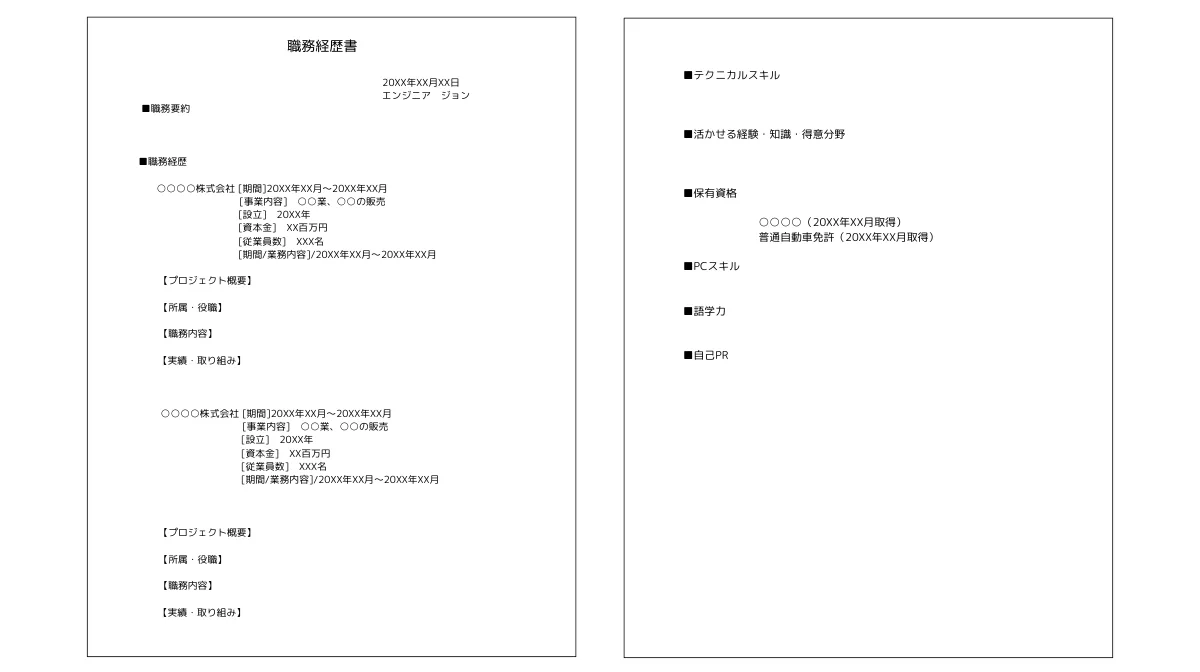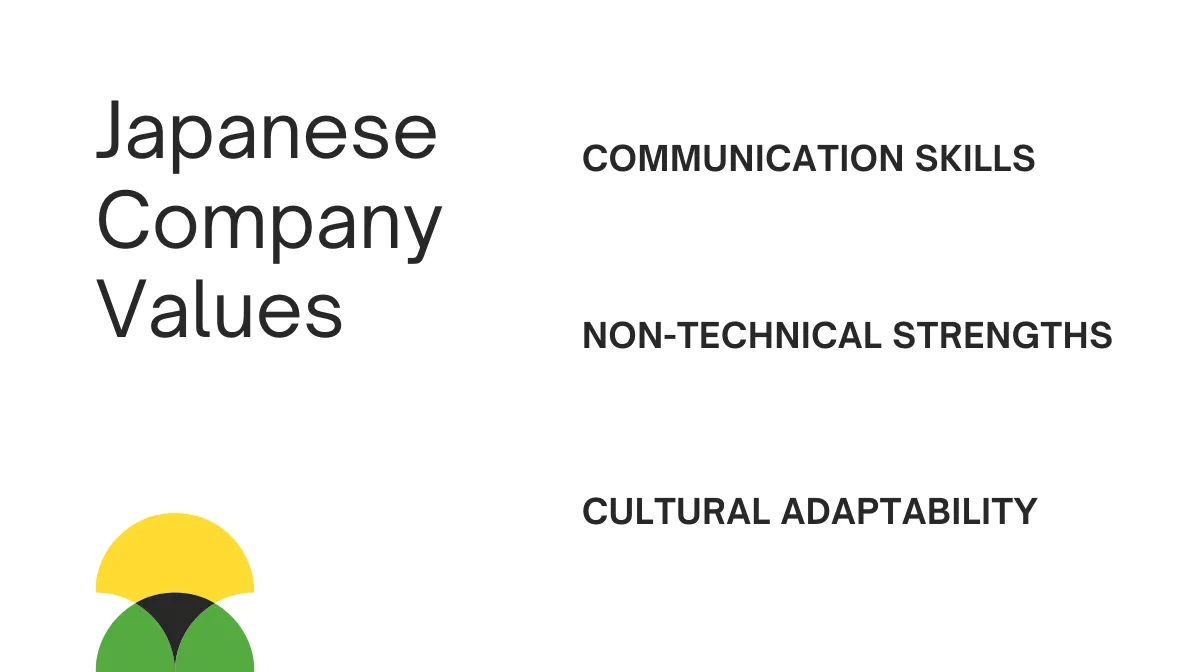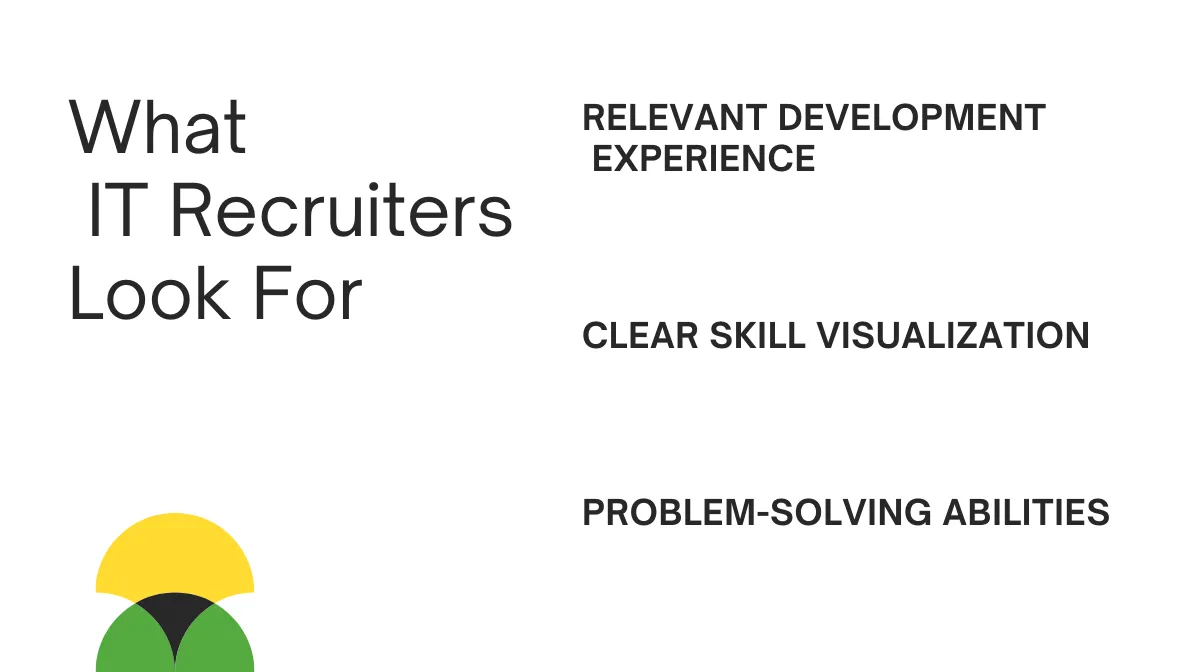For foreign engineers considering employment or job changes in Japan, the resume (職務経歴書) is one of the most crucial documents. However, many struggle with Japan’s unique format and expression style.
This article will explain how to write an effective resume for foreign engineers, focusing on practical points from the perspective of hiring managers.
- How to showcase your technical skills in a Japanese resume format
- Major differences between Japanese and global resumes
- Cultural expectations in Japanese engineering recruitment
1.Resume Basics for Foreign Engineers in Japan

Japanese resumes have distinct characteristics that differ from those used internationally.
Here, we’ll explain the basic structure and key points that Japanese companies value, along with effective writing tips from a hiring manager’s perspective.
What is a Japanese Resume?
A Japanese resume is a document that comprehensively summarizes your work history, technical skills, and achievements. In Japan’s hiring process, it is considered one of the most important documents alongside your CV (履歴書). For IT engineers specifically, it provides an opportunity to demonstrate technical prowess and problem-solving abilities.
Differences Between Japanese and International Resumes
Japanese resumes typically require more detailed information compared to international resumes. While 1-2 pages are standard internationally, 3-4 page resumes are commonly accepted in Japan.
The order of information also differs, with Japanese resumes following a reverse chronological format as the standard. Detailed explanations of each project are also expected.
Japanese resumes emphasize specific numerical achievements and results. Additionally, descriptions of teamwork and cooperative abilities are highly valued. Clear explanations of reasons for changing jobs and future career visions are also required.
Key Points for Japanese Language Expression in Resumes
When describing technical accomplishments, rather than using simple expressions like “was in charge of,” it’s preferable to use expressions that include specific achievements, such as “implemented and achieved performance improvements.”
Instead of passive expressions like “participated in,” using proactive expressions like “took responsibility for and solved challenges” creates a stronger impression.
While process descriptions are important, focus more on results and achievements in your writing.
2.8 Steps to Writing Your Resume as a Foreign Engineer

Date and Name
When creating your resume, include the creation date and your name in the top right corner. Always use the submission date as the creation date, never a past date.
For foreign nationals, it’s important to match your name with your passport. While English notation is acceptable, including katakana notation makes it easier for Japanese hiring managers to read.
It’s also good to prepare information about your visa status and residence card number, as these may be required.
Career Summary
The career summary is a crucial section that hiring managers read first.
Write a concise 200-300 character summary of your career. Specify your total years of experience as an engineer and years of experience in your specialized field.
It’s important to specifically mention your system development experience in various industries (finance, manufacturing, e-commerce, etc.).
For programming languages, frameworks, and infrastructure environments, focus on listing those you actively use currently.
If you have particularly impressive projects or achievements, include these briefly. Clearly indicate your most competitive technical areas and roles to capture the hiring manager’s interest.
If you have a GitHub account or portfolio URL that’s important as an engineer, be sure to include it. These serve as valuable proof of your technical abilities.
Work Experience
Your resume can effectively communicate your career and achievements by clearly stating your experiences in reverse chronological order, starting with your most recent position. Concisely explain company information, project details, responsibilities, technologies used, and specific achievements for each role.
Particularly, including achievements that can be demonstrated with numerical values helps clearly convey your level of contribution.
Technical Skills
A resume effectively communicates your career and achievements by clearly stating the following items.
List your work history in reverse chronological order, organizing your experience at each company chronologically. Concisely describe company information, project details, responsibilities, technical skills, and specific achievements.
Qquantifiable achievements should be stated with specific numbers to clearly demonstrate your contributions.
| Item | Description | Example |
|---|---|---|
| Period | yyyy/mm – yyyy/mm | April 2020 – March 2022 |
| Company Information | – Company name (with English name if foreign) – Business description – Number of employees | Sample Inc. IT Consulting Business Employees: 300 |
| Organizational Details | – Department – Position – Role in organization | Development Division, System Development Section Project Manager Team Leader of 10 members |
| Project Details | – Project duration – Purpose – Scale – Team structure | 6-month core system renovation Sales management optimization Annual sales: 10 billion yen 8-member team |
| Responsibilities | – Project phases – Specific tasks – Scope of responsibility | Full involvement from requirements to operations Design, Implementation, Testing, Operations Overall development team management |
| Technical Skills | – Programming languages – Frameworks – Middleware | Java, Python Spring Boot, React MySQL, Docker |
| Quantitative Achievements | Specific numerical results | – 50% reduction in processing time – 30% cost reduction – 20% improvement in user satisfaction |
※ List experience in reverse chronological order
※ Include specific numerical achievements
※ Provide detailed information about management experience
Areas of Expertise and Experience
For areas of expertise, provide detailed explanations of both technical specialties and business strengths.
Include specific achievements in areas such as infrastructure design and construction, security measure implementation, performance tuning methods and results, and large-scale system operation experience.
If you have project management experience, mention your achievements as a team leader, schedule management methods, and risk management approaches.
PC Skills and Certifications
For IT-related certifications, clearly state the types and levels of certifications obtained, such as AWS certifications, LPIC, Oracle certifications, and Information Technology Engineer Examinations, along with acquisition dates.
Include expiration dates for certifications that have them. Mentioning how you apply certifications in practical work makes your description more convincing.
Language Skills
Regarding language skills, include scores from Japanese Language Proficiency Test (JLPT) and English proficiency tests (TOEIC, etc.), along with practical usage experience.
For example, highlight practical language abilities such as technical document writing in Japanese, communication in meetings, and interactions with overseas teams in English.
Also describe other languages, including your native language, with their potential business applications in mind.
Self-Promotion
In your self-promotion section, make a value proposition to the hiring company from both technical and personal perspectives.
First, explain your technical strengths, reasons for your expertise, specific problem-solving achievements, and commitment to continuous learning.
Describe communication abilities and teamwork based on actual project experiences. Particularly demonstrate practical abilities by showing examples of cross-cultural adaptation and team contributions.
■日本でエンジニアとしてキャリアアップしたい方へ
海外エンジニア転職支援サービス『 Bloomtech Career 』にご相談ください。「英語OK」「ビザサポートあり」「高年収企業」など、外国人エンジニア向けの求人を多数掲載。専任のキャリアアドバイザーが、あなたのスキル・希望に合った最適な日本企業をご紹介します。
▼簡単・無料!30秒で登録完了!まずはお気軽にご連絡ください!
Bloomtech Careerに無料相談してみる
3.Key Points Valued by Japanese Companies and How to Address Them

Understanding Japan-specific hiring criteria and evaluation points is crucial when creating your resume.
Expressing Teamwork and Communication Skills
Japanese companies particularly value teamwork and communication skills. Specifically describe your team development experiences, roles within teams, communication methods, and achievements in collaborative problem-solving processes.
Non-Technical Strengths
Beyond pure technical ability, project management skills, documentation abilities, customer service skills, and experience mentoring junior colleagues are also important selling points.
Cultural Adaptability
Adaptability to Japanese corporate culture is also an important evaluation point. Demonstrate your understanding and adaptability to Japanese workplace environments through examples of practicing ho-ren-so (reporting, communicating, consulting), quality control initiatives, and participation in improvement activities.
4.What IT Engineer Recruiters Look for in Resumes

Relevant Development Experience
Recruiters primarily check whether applicants’ experience can be utilized in their company’s development. It’s important to provide detailed descriptions of practical applications such as scalable system design, security measure implementation, performance optimization, and new technology introduction.
Clear Skill Visualization
When evaluating technical abilities, recruiters check specific project scales, areas of responsibility, reasons for technology selection, and achieved performance indicators.
Problem-Solving Abilities
To demonstrate problem-solving abilities, provide detailed descriptions of actual challenges faced and their resolution processes.
■日本でエンジニアとしてキャリアアップしたい方へ
海外エンジニア転職支援サービス『 Bloomtech Career 』にご相談ください。「英語OK」「ビザサポートあり」「高年収企業」など、外国人エンジニア向けの求人を多数掲載。専任のキャリアアドバイザーが、あなたのスキル・希望に合った最適な日本企業をご紹介します。
▼簡単・無料!30秒で登録完了!まずはお気軽にご連絡ください!
Bloomtech Careerに無料相談してみる
5.Creating Your Resume with Key Points in Mind
Your resume is a crucial tool for conveying your technical abilities and potential. While being mindful of Japan-specific formats and expressions, effectively promoting your strengths is key to success.
Aim for balanced content that includes not only detailed technical skills but also teamwork, problem-solving abilities, and cultural adaptability.
Your chances of passing document screening greatly increase if you can clearly convey your value from a recruiter’s perspective, incorporating specific achievements and numerical results.
We hope this article helps in building your career in Japan. Thank you for reading to the end.
■Related Reading
The following content introduces tips for creating resumes and CVs that will be useful for interviews with Japanese companies. Please use them as a reference.
















